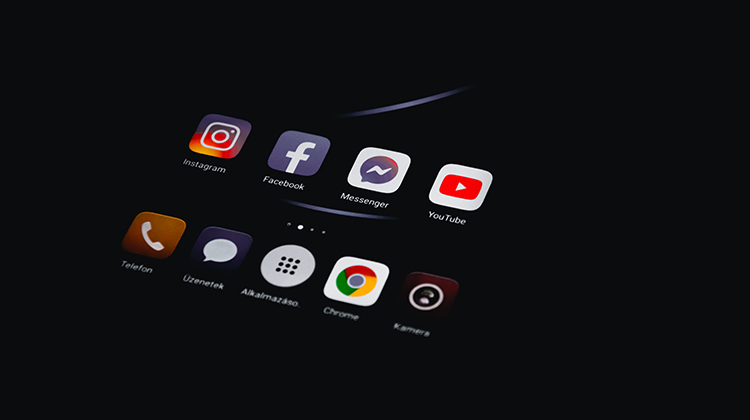I Think, Therefore I am My Consequences

When choices and personal responsibilities are understood, that is when thinking and behaviour will change.
This article is a response to Young People Unable to Leave Their Most Toxic Relationship - Kids want to disconnect from social media but FOMO won’t let them (Education Today).
Intrinsic Motivation
Research by William Glasser, a prominent psychiatrist and educational theorist, declared that it is the individual’s intrinsic motivation and their personal attitude that has the most influence over what the individual will do and choose.
Self-regulation
Albert Bandura points out about the importance of self-regulation. Self-regulation is about individuals being able to “exercise influence over their own motivation, thought processes, emotional states and patterns of [behaviour].”
Self-management
Associated with this, Anita Woolfolk refers to the profound importance of teaching students about self-management. As Woolfolk declares: “If one goal of education is to produce people who are capable of [successfully] educating themselves, then students must learn to manage their own lives, set their own goals, and provide their own [moral] reinforcement…Life is filled with tasks that call for…self-management.”
Free Will
Research by Glasser, Bandura and Woolfolk has a direct and immutable relationship with the universal existence of human consciousness and free will. The Ethics Centre defines free will in the following terms: “Free Will describes our capacity to make choices that are genuinely our own. With free will comes moral responsibility - our ownership of our good and bad deeds.” Added to this are the words of Charles Popplestown who points out: “You cannot always control circumstances, but you can control your own thoughts” and also the insight of Mahatma Gandhi who declared: “We must become the change we want to see.”
I Think; Therefore I am
Then there is the profound insight of René Descartes, who helped usher in the Age of Reason and Enlightenment, when he announced to the world the proof of human consciousness with the words: “Cogito, ergo sum” (“I think: therefore I am”) “I think, therefore I am” was the end of the search Descartes conducted for a statement that could not be doubted. He found that he could not doubt that he himself existed, as he was the one doing the doubting in the first place. In Latin (the language in which Descartes wrote), the phrase is “Cogito, ergo sum.” (Dictionary.com).
There is No Excuse
Research unambiguously informs that social circumstances should not be used as an excuse for engaging in negative behaviours. If social circumstances are used to excuse and allow for negative behaviours to take place (and persist), it is this type of thinking and social enabling, that then tends to lead to ongoing negative behaviours taking place. That is because personal responsibilities have been removed and replaced by third-party blame, i.e., “it’s not my fault,” thinking and statements.
Third-party Blame
This third-party blame is then used (by the individual - and at times - society itself), as the excuse for allowing individuals to constantly engage in ongoing negative behaviour choices. Katherine Cullen (May 1, 2022, Psychology Today) informs, in her meta-analysis research where nearly 70,000 people in 24 countries, found that negative social circumstances do not override or take the place of constructive choices, personal responsibilities and moral behaviours.
“Many studies estimate that the vast majority of us (over 70 percent, according to a survey of nearly 70,000 people in 24 countries) are exposed to at least one major trauma in our lifetime. And yet the global prevalence of PTSD is only a fraction of that, some studies suggest it’s less than 4 percent. As psychologist George Bonanno has argued, the most common response to trauma is actually resilience.”
Resilience
In relation to resilience, Michele Tugade and Barbara Fredrickson are of the opinion that resilience is “the capacity to move on in a positive way from negative, traumatic or stressful experiences.” Michael Rutter maintains that resilience is “the ability to bounce back or cope successfully despite substantial adversity.” Janet Young, citing Froma Walsh (2003) proposes that “resilience refers to strengths under stress, in response to crisis, and forged through dealing with adversity.”
Insight and Knowledge
The immutable fact is that if one chooses to engage in negative behaviours, these negative behaviours are taking place because humans are sentient beings with the capacity for free will, and free will means that it is consciousness that provides us with the cognitive and intellectual insight, along with its accompanying knowledge, to understand that all choices lead to consequences.
That is When Thinking and Behaviours Change
As research informs, it is when choices and personal responsibilities are understood, that is when thinking and behaviours change. This is when the sentient possibilities of self-motivated constructive and positive thinking and positive behaviours become the living choice and the presenting behaviour of the individual.
Dr Ragnar Purje (PhD; M.Ed.; M.Ed.(Guid.&Couns.); M.Ed.(Lead.&Man.); B.A.(Psych.); B.App.Sc.(P.E.); Grad.Dip.Ed.; Grad.Dip.Sp.Sc.; Grad.Dip.Ex.Sp.Sc.; Grad.Cert.(Comm.); Grad.Dip.(Health Couns.); Cert.IV in Assess.&Workplace Training) is an Adjunct Senior Lecturer at CQUniversity in the School of Education and the Arts. Dr Purje works with Professor Ken Purnell specialising in classroom behaviour management strategies. Dr Purje is the author of Responsibility Theory®. Dr Purje is represented by Saxton Speakers Bureau.